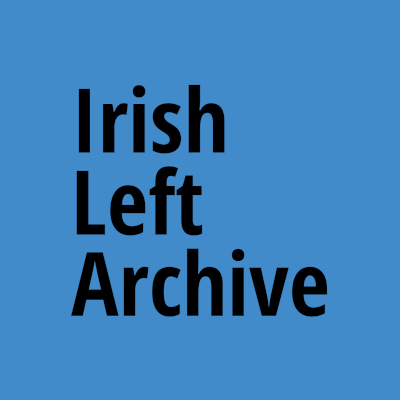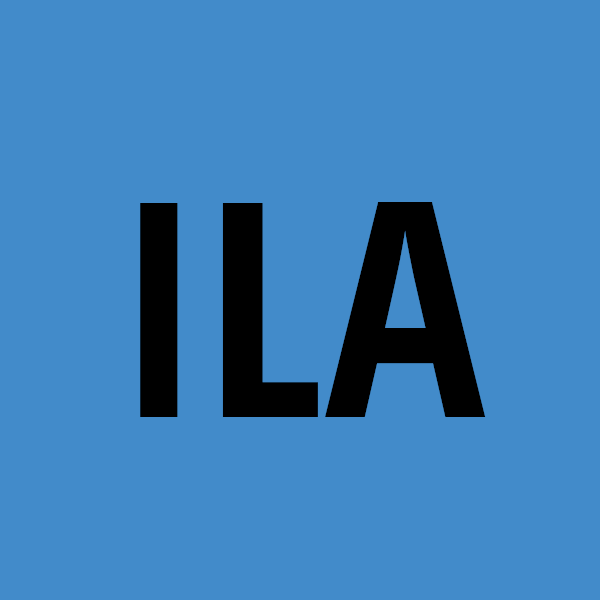Back Showing posts tagged #labourleft
In June 1984, a visit by Ronald Reagan to Ireland was met with widespread protests, with a march on Shannon airport on his arrival, a large “ring around Reagan” protest in Dublin city centre, and the Women’s Peace Camp in the Phoenix Park.
This article from Labour left expresses disappointment at that party's failure to oppose the visit.
#Ireland #Politics #History #RonaldReagan #Labour #LabourLeft #IrishLeftArchive
In June 1984, a visit by Ronald Reagan to Ireland was met with widespread protests, with a march on Shannon airport on his arrival, a large “ring around Reagan” protest in Dublin city centre, and the Women’s Peace Camp in the Phoenix Park.
This article from Labour left expresses disappointment at that party's failure to oppose the visit.
#Ireland #Politics #History #RonaldReagan #Labour #LabourLeft #IrishLeftArchive


![A scanned magazine article, reading:
Silence is violence
Nearly seven hundred delegates at the Labour Party Conference voted for a composite motion which called for a boycott of functions and engagements held in connection with President Reagan’s Irish visit. The international committee advocated a similar approach. However, it was defeated by the narrowest of margins.
Speakers from what may be termed the party’s ‘centre’ argued against a boycott. Senators O’Mahoney and Harte having condemned torture, mass murder,violations of international law, the attempts to overthrow a legitimate government (one that is supported by the Socialist International) and all criminal activities sponsored by the Reagan Administration, then turned around and said a boycott wouldn’t look good or was contrary to ‘protocol’. They of course were to later absolve their socialist conscience by personally boycotting the joint session but had helped block Labour taking effective action as a party. This position might be characterised as leading from behind. A majority of the score or more parliamentarians who boycotted Reagan’s Oireachtas speech were Labour Party representatives, yet because we did not lead from the front, a course advocated by the Left and one which would have brought attention to our internationalist philosophy, we failed to offer genuine, as opposed to token, solidarity with the oppressed in the Third World.
At Conference the leadership were given a lifeline in the form of a petition to be given to Reagan which replaced the boycott. Dick Spring we are told fulfilled his obligations in this regard although predictably this exercise did not receive any headlines or photographs nor was it meant to. Spring neither led from the front nor behind but rather played second fiddle to the host, Garret FitzGerald.
Given that nearly 50% of Party wanted a complete boycott and an overwhelming majority showed grave concern at Reagan’s policies one would have expected Spring to give public expression of this anger. Instead his contributions to this media event was laughing and joking with Nancy Reagan at the State Banquet while hundreds of party members marched together outside with thousands of others.
Once again the leadership proved incapable of giving expression to the concerns, aspirations and idealism of young people. Another opportunity missed.
[Image shows a number of people marching in Dublin with the foreground banner reading "Silence is violence". It is captioned: Protestors at anti-Reagan demo.]](https://posts.leftarchive.ie/attachments/thumbnails/ba63a53f49ddff34167cd5270867c19f1e6cf725e36f28d986abcf1156c78744/Labour_left--Reagan.jpeg)
![A scanned magazine article, reading:
Silence is violence
Nearly seven hundred delegates at the Labour Party Conference voted for a composite motion which called for a boycott of functions and engagements held in connection with President Reagan’s Irish visit. The international committee advocated a similar approach. However, it was defeated by the narrowest of margins.
Speakers from what may be termed the party’s ‘centre’ argued against a boycott. Senators O’Mahoney and Harte having condemned torture, mass murder,violations of international law, the attempts to overthrow a legitimate government (one that is supported by the Socialist International) and all criminal activities sponsored by the Reagan Administration, then turned around and said a boycott wouldn’t look good or was contrary to ‘protocol’. They of course were to later absolve their socialist conscience by personally boycotting the joint session but had helped block Labour taking effective action as a party. This position might be characterised as leading from behind. A majority of the score or more parliamentarians who boycotted Reagan’s Oireachtas speech were Labour Party representatives, yet because we did not lead from the front, a course advocated by the Left and one which would have brought attention to our internationalist philosophy, we failed to offer genuine, as opposed to token, solidarity with the oppressed in the Third World.
At Conference the leadership were given a lifeline in the form of a petition to be given to Reagan which replaced the boycott. Dick Spring we are told fulfilled his obligations in this regard although predictably this exercise did not receive any headlines or photographs nor was it meant to. Spring neither led from the front nor behind but rather played second fiddle to the host, Garret FitzGerald.
Given that nearly 50% of Party wanted a complete boycott and an overwhelming majority showed grave concern at Reagan’s policies one would have expected Spring to give public expression of this anger. Instead his contributions to this media event was laughing and joking with Nancy Reagan at the State Banquet while hundreds of party members marched together outside with thousands of others.
Once again the leadership proved incapable of giving expression to the concerns, aspirations and idealism of young people. Another opportunity missed.
[Image shows a number of people marching in Dublin with the foreground banner reading "Silence is violence". It is captioned: Protestors at anti-Reagan demo.]](https://posts.leftarchive.ie/attachments/thumbnails/859e23f03ff046cae42e67d2092543fb79d63670bdcce4f00565b4e895167b19/Labour_left--Reagan.png)